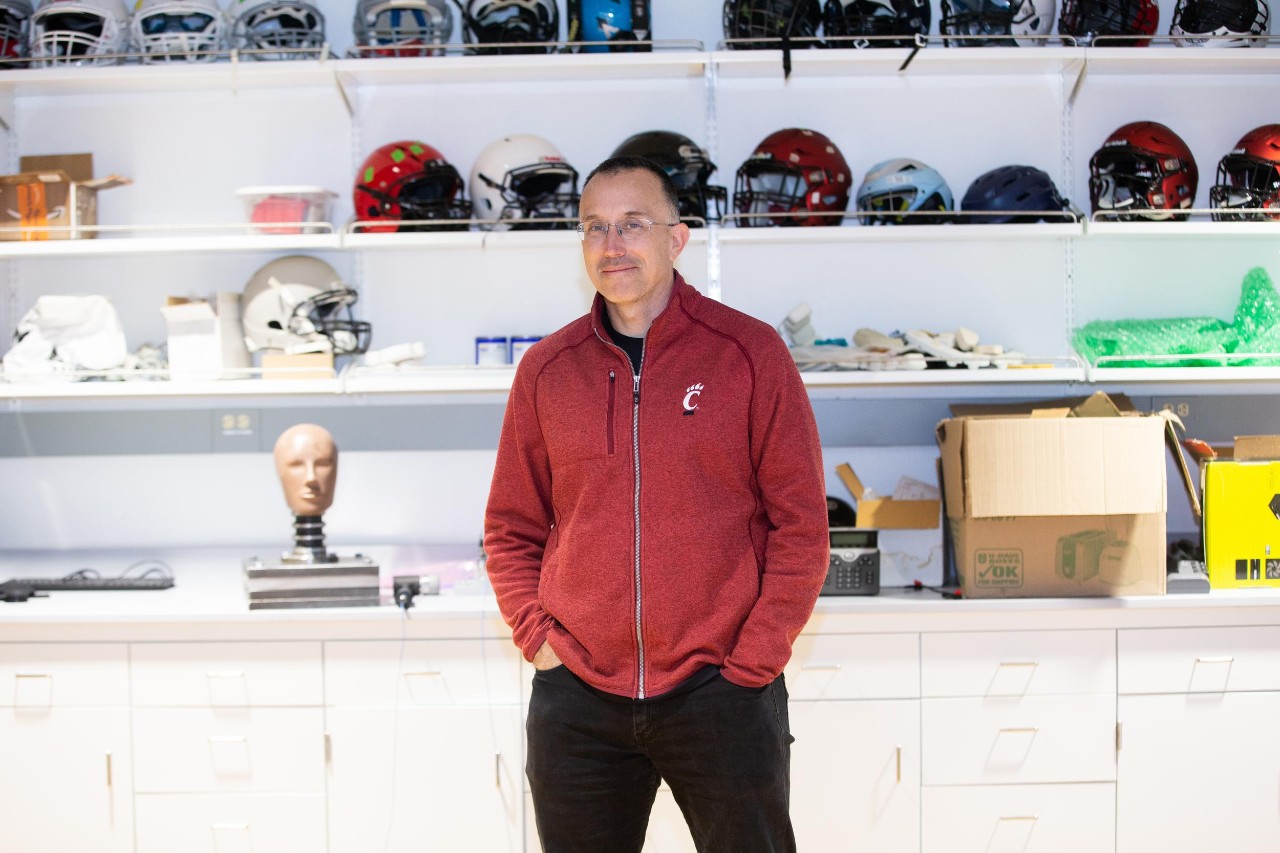
This familiar gesture might be a sign of concussion
UC biomedical engineering professor talks about preventing brain injuries
WebMD turned to a biomedical engineering professor at the University of Cincinnati to discuss whether a player's shaking his or her head after an impact could be a possible indication of concussion.
A study by Boston University and the Concussion Legacy Foundation found that spontaneous head shaking after an impact could be an observable sign of concussion. The study was published in the National Library of Medicine.
UC College of Engineering and Applied Science Professor Eric Nauman studies concussions and other sports-related injuries in his biomedical engineering lab.
While he was not part of the head-shaking study, Nauman said researchers have found that players often try to hide concussions from coaches and sports medical staff.
“Even without a diagnosed concussion, the brain changes a lot, almost a terrifying amount, throughout the course of a football season,” Nauman told WebMD.
So if coaches and medical staff have more objective ways to diagnose concussions, they can help protect players who otherwise might feel compelled to disregard their own wellbeing.
Featured image at top: UC College of Engineering and Applied Science Professor Eric Nauman studies sports injuries in his biomedical engineering lab. Photo/Andrew Higley/UC Marketing + Brand
Related Stories
This familiar gesture might be a sign of concussion
October 31, 2024
UC biomedical engineering Professor Eric Nauman tells WebMD that a player's shaking his or her head after an impact could be a possible indication of concussion.
How to prevent concussions in football? Better helmets
March 6, 2023
Football helmets made by four leading manufacturers showed vulnerabilities in tests designed to better understand player concussions, according to a study by the University of CIncinnati.
WCPO: UC engineer explains design of Joe Burrow's new helmet
July 26, 2023
WCPO talks to UC biomedical engineering Professor Eric Nauman about Cincinnati Bengals quarterback Joe Burrow's new helmet and the risks of concussion in the NFL.
